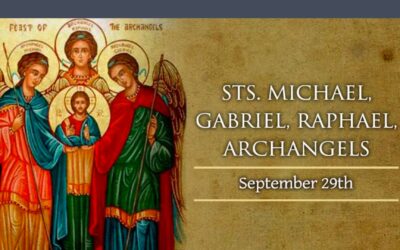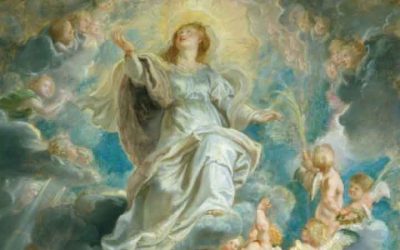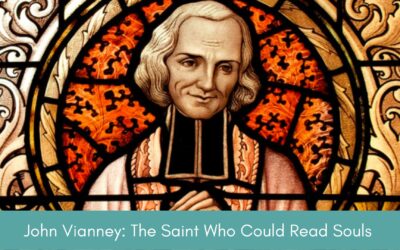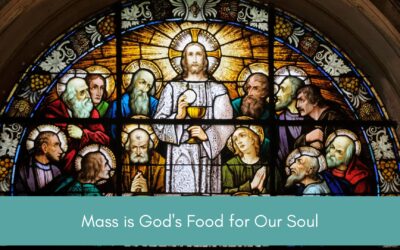Father Nathan Homily | September 29, 2019
Father Nathan | Homily
26th Sunday Ordinary Time
Introduction:
The main theme of this Sunday’s readings is inviting each one of us to make good use of the earthly treasure(s) that God has bestowed on us.
Today’s readings present an invitation, a challenge and a warning.
It is an invitation to each of us to be conscious of the sufferings of those around us and take action and a challenge for us to share our blessings generously.
2 Corinthians 9:6-8Remember this: Whoever sows sparingly will also reap sparingly, and whoever sows generously will also reap generously. Each of you should give what you have decided in your heart to give, not reluctantly or under compulsion, for God loves a cheerful giver.
It also provides a warning against the selfish and extravagant use of God’s blessings (wealth, is an example) without sharing them with the poor and the needy is a serious sin deserving eternal punishment.
Today’s readings stress the Covenant responsibility of the rich for the poor, reminding us of the truth that wealth without active mercy for the poor is great wickedness. It warns us against making wealth, money and possessions the goal of our existence.
We are called to notice and minister to the poor.
Wealth is not bad. After all, Abraham was wealthy. But the blessing of wealth brings certain responsibilities, we are called to be good stewards of the treasure and wealth God bestows on us in this life. God will require an accounting of how we handle the gifts of this life.
We are challenged, in this busy life, to notice and minister to the poor.
The rich man’s punishment is not for riches, but for neglect of the scriptures and what they teach.
We are called to give out of the love of God within us. Not selfishly to release our guilt, or atone for sins, but selflessly to care for someone else’s need.
Scripture Lessons Summarized:
The First Reading
Amos 6:1a, 4-7
Amos issues a powerful warning to those who seek wealth at the expense of the poor and who spend their time and their money on themselves alone.
He prophesies that those rich and self-indulgent people will be punished by God with exile because they don’t care for their poor and suffering brothers.
The Responsorial Psalm
Today’s Responsorial Psalm 146:7, 8-9, 9-10 (1b)
Praise the Lord my, soul.
This Psalm praises Yahweh, who cares for the poor.
The Second Reading
1 Timothy 6:11-16
Paul admonishes us to
“pursue righteousness, devotion, faith, love, patience, and gentleness”
– noble goals in an age of disillusionment – rather than riches.
Today’s Gospel
Luke 16:19-31
Jesus gives us a warning, pointing to the destiny of the rich man who neglected his duty to show mercy to poor Lazarus. The rich man was punished, not for having riches, but for neglecting the Scriptures and what they taught on sharing his blessings with the poor.
Gospel exegesis (interpretation):
The parables objectives:
Jesus told this parable to condemn the Pharisees for their love of money and lack of mercy for the poor.
He also used the parable to correct three Jewish misconceptions held and taught by the Sadducees:
1) Material prosperity in this life is God’s reward for moral uprightness, while poverty and illness are God’s punishment for sins. Hence, there is no need to help the poor and the sick for they have been cursed by God.
2) Since wealth is a sign of God’s blessing, the best way of thanking God is to enjoy it by leading a life of luxury and self-indulgence in dress, eating and drinking, of course, after giving God His portion as tithe.
3) The parable also addresses the false doctrine of the Sadducees denial of the soul’s survival after death, and the consequent retribution our deeds and neglects in this life will receive in the next.
Jesus challenges these misconceptions through the parable and condemns the rich who ignore the poor they encounter. The parable also offers an invitation to each one of us to be conscious of the sufferings of those around us and to share our blessings generously and cheerfully.
Why should God punish the innocent? Naturally, we are tempted to ask the question, why was the rich man punished? He did not drive either the poor beggar or the stray dogs from in front of his door nor did he prevent either from sharing the discarded crumbs and leftovers from his table. The Fathers of the Church find three culpable omissions in the rich man in the parable.
- He neglected the poor beggar at his door by not helping him to treat his illness or giving him a small house to live in.
- He ignored the scrolls of Sacred Scriptures kept on his table reminding him of Yahweh’s commandment in the book of Leviticus (15: 7-11) “Don’t deny help to the poor. Be liberal in helping the widows and the homeless.”
- He led a life of luxury and self-indulgence totally ignoring the poor people around him, with Cain’s attitude: “Am I the guardian of my brother?” It is not wrong to be rich, but it is wrong not to share our blessings with our less fortunate brothers and sisters.
The lessons taught:
This parable teaches important lessons:
- It reminds us that eventually all of us will experience God’s justice after our death (“particular judgment”), when we are asked to give an account of our lives.
- It points to the Law and the Prophets (the Sacred Scriptures), as ways to learn how to practice righteousness and sacrificial sharing.
- It looks ahead to our resurrection (“neither will they be convinced if someone rises from the dead”), and the reality that the people who heed nothing and die unrepentant will suffer for it.
Life Messages:
We are all rich enough to share our blessings with others. God has blessed each one of us with wealth or health or special talents or social power or political influence or a combination of many blessings.
The parable invites us to share what we have been given with others in various ways instead of using everything exclusively for selfish gains.
The love of worldly possessions is a sort of bird line, which entangles the soul, and prevents it flying to God. – Saint Augustine
Have a Blessed Week,
Fr. Nathan
Join
Join our Parish Family
Register in the parish, so that it’s easy to become a confirmation sponsor or Godparent.
Volunteer
Want to Lend a Helping Hand?
Find volunteer opportunities and share your talents.
Get Help
Need a Helping Hand?
We are here to help. Request home visits, send a prayer request. For urgent needs call 954.943.3684
Give
Coming Soon
Set up Online Giving.
You can make a one-time donation or set up recurring gifts.
Past Messages from Father Nathan
From The Desk Of Father Nathan | September 4, 2022
“I called to the Lord, the Lord heard my cry, and He answered me and delivered me from all of my affliction.” – Ps:34:4-6. I believe very strongly that our prayers will never go in vain. I came to India crying and praying to our Lord to lift my mother up from her sickness…
From The Desk Of Father Nathan | August 28, 2022
The Feasts of the Holy Archangels, Saint Michael, Saint Gabriel, and Saint Raphael, Celebrated on September 29. Learn more about the Archangels
From The Desk Of Father Nathan | August 21, 2022
Thank you for your birthday wishes, gifts, and prayers. You always make me feel so special. Thank you again for your prayers and support for my mother. Read on to learn more about her condition.
From The Desk Of Father Nathan | August 7, 2022
August 15th is an important and memorable day for all Catholics. It is the Feast celebrating the Assumption of our Blessed Mother. Learn More about the the theology and the catechism of the Assumption of our Blessed Mother
From The Desk Of Father Nathan | July 31, 2022
St. John Vianney feast day is celebrated annually on August 4th St. John Marie Vianney was a priest who Pope Pius X proposed as a model and patron saint of all the priests because of his extraordinary devotion and life. A life which he committed to the church ministry. St. John Marie Vianney was born on May 8, 1786 …
From The Desk Of Father Nathan | July 24, 2022
Mass is God’s Food for Our Soul, come and partake. I am glad and delighted to witness many coming back to the church in person, which is great! I am looking forward to witnessing all our people back at the church. I thought maybe it would be good to do a little catechism as my thankfulness.






